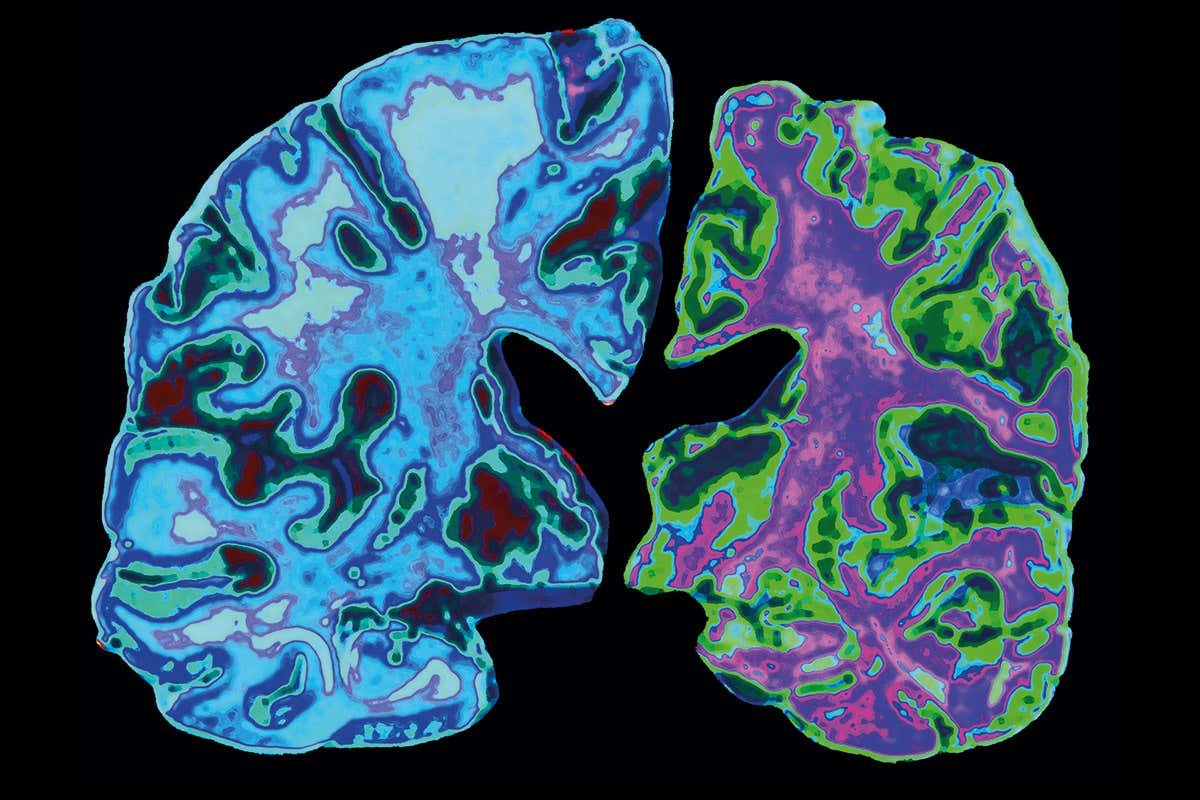Actinogen Medical Launches Phase 2b XanaMIA Trial for Alzheimer's, Marks First Patient Treatment
16 April 2024 | Tuesday | News

Image Source : Public Domain
Actinogen Medical Limited (ASX: ACW) announces that the first patient has been randomized and treated in the XanaMIA phase 2b clinical trial in patients with biomarker-positive mild to moderate Alzheimer's disease (AD). This represents the culmination of the site and screening setup phase of the trial when patient pre-screening for elevated levels of the pTau blood biomarker commenced at multiple clinical sites.
The XanaMIA trial is a double-blind placebo-controlled randomized trial design which will enrol 220 participants with mild to moderate AD and elevated levels of plasma pTau. The trial measures the effects of a Xanamem® 10 mg daily dose versus placebo on safety and its ability to preserve cognition and function over a 36-week treatment period.
The primary endpoint is a cognitive test battery comprising seven different digital assessments (previously, Xanamem benefits on cognition were observed in three separate placebo-controlled trials including an initial study in AD).
A key secondary endpoint is the Clinical Dementia Rating – Sum of Boxes scale (CDR-SB), a validated combined cognitive and functional measure, used by the FDA and many companies as a primary or secondary endpoint for regulatory approval. Previously, in an analysis of biomarker-positive patients with mild AD treated with Xanamem, clinically significant benefits were seen on cognition and the CDR-SB endpoint. A variety of other secondary endpoints include the Amsterdam Activity of Daily Living scale, which measures the ability to perform everyday tasks.
The trial has commenced at thirteen Australian sites and will subsequently expand to the USA. An interim analysis is planned for mid-2025 when approximately 100 patients reach 24 weeks of treatment, with final results anticipated in H1 2026.
Dr Steven Gourlay, Actinogen's CEO said:
"We are very pleased to announce the first patient treated in our phase 2b trial in patients with Alzheimer's disease. Based on encouraging safety and clinical activity seen in multiple prior trials of Xanamem, and a strong scientific rationale for reducing brain cortisol levels, we are confident that the trial will confirm clinically and statistically meaningful results."
"This phase 2b trial is designed to confirm that Xanamem is a safe and effective new treatment for Alzheimer's disease and represents a major opportunity for patients and the Company."
Actinogen awarded UK Innovation Passport for Xanamem
Actinogen has also received approval from the UK Medicines and Healthcare products Regulatory Agency (MHRA) of its application for an Innovation Passport as part of the Innovative Licensing and Access Pathway (ILAP) for Xanamem in the treatment of Alzheimer's disease.
Key benefits of this approval include:
- Entry point to the ILAP which aims to accelerate time to market
- Linkage to a portfolio of activities through the product-specific creation of the Target Development Profile (TDP) in conjunction with the MHRA
- Opportunities for enhanced regulatory and other stakeholder input including from partner agencies such as the MHRA and National Institute for Health and Care Excellence (NICE).
Dr Steven Gourlay, Actinogen's CEO said:
"The MHRA's approval of the ILAP application validates our belief in Xanamem's unique and encouraging profile for the treatment of Alzheimer's disease. Following on from three prior trials showing promising activity, Actinogen's 220-person phase 2b trial in Alzheimer's is now underway and will report initial results in mid-2025."
The next step in the ILAP process will be to commence development of the TDP.
XanaCIDD phase 2a cognitive impairment and depression trial nears completion
- The XanaCIDD Phase 2a depression trial enrolment has surpassed 90%
- Full enrolment of approximately 160 patients is expected later in April
- Results to report in early Q3 2024
The XanaCIDD Phase 2a Depression trial is a six-week proof-of-concept, placebo-controlled, parallel group design trial in patients with persistent Major Depressive Disorder (MDD) and cognitive impairment.
Xanamem 10 mg daily or placebo is added to the existing anti-depressant therapy, if being used. Therapeutic effects on cognition, measured using an "Attention Composite" of the computerized Cogstate Cognitive Test Battery are assessed as the primary endpoint (a composite of the One Back, Identification and Detection tests). Effects on depression are measured using the Montgomery-Asberg Depression Rating Scale.
Previously, positive benefits on cognition were observed using the same Attention Composite endpoint in two independent, placebo-controlled trials of older, cognitively normal volunteers.
Most Read
- How Does GLP-1 Work?
- Innovations In Magnetic Resonance Imaging Introduced By United Imaging
- Management of Relapsed/Refractory Multiple Myeloma
- 2025 Drug Approvals, Decoded: What Every Biopharma Leader Needs to Know
- BioPharma Manufacturing Resilience: Lessons From Capacity Expansion and Supply Chain Resets from 2025
- APAC Biopharma Review 2025: Innovation, Investment, and Influence on the Global Stage
- Top 25 Biotech Innovations Redefining Health And Planet In 2025
- How Health Systems Are Reshaping Drug Adoption, Partner Models, and Market Access in 2026
- The New AI Gold Rush: Western Pharma’s Billion-Dollar Bet on Chinese Biotech
- Single-Use Systems Are Rewiring Biopharma Manufacturing
- The State of Biotech and Life Science Jobs in Asia Pacific – 2025
- Asia-Pacific Leads the Charge: Latest Global BioSupplier Technologies of 2025
- Invisible Threats, Visible Risks: How the Nitrosamine Crisis Reshaped Asia’s Pharmaceutical Quality Landscape
Bio Jobs
- Sanofi Turns The Page As Belén Garijo Steps In And Paul Hudson Steps Out
- Global Survey Reveals Nearly 40% of Employees Facing Fertility Challenges Consider Leaving Their Jobs
- BioMed X and AbbVie Begin Global Search for Bold Neuroscience Talent To Decode the Biology of Anhedonia
- Thermo Fisher Expands Bengaluru R&D Centre to Advance Antibody Innovation and Strengthen India’s Life Sciences Ecosystem
- Accord Plasma (Intas Group) Acquires Prothya Biosolutions to Expand Global Plasma Capabilities
- ACG Announces $200 Million Investment to Establish First U.S. Capsule Manufacturing Facility in Atlanta
- AstraZeneca Invests $4.5 Billion to Build Advanced Manufacturing Facility in Virginia, Expanding U.S. Medicine Production
News











